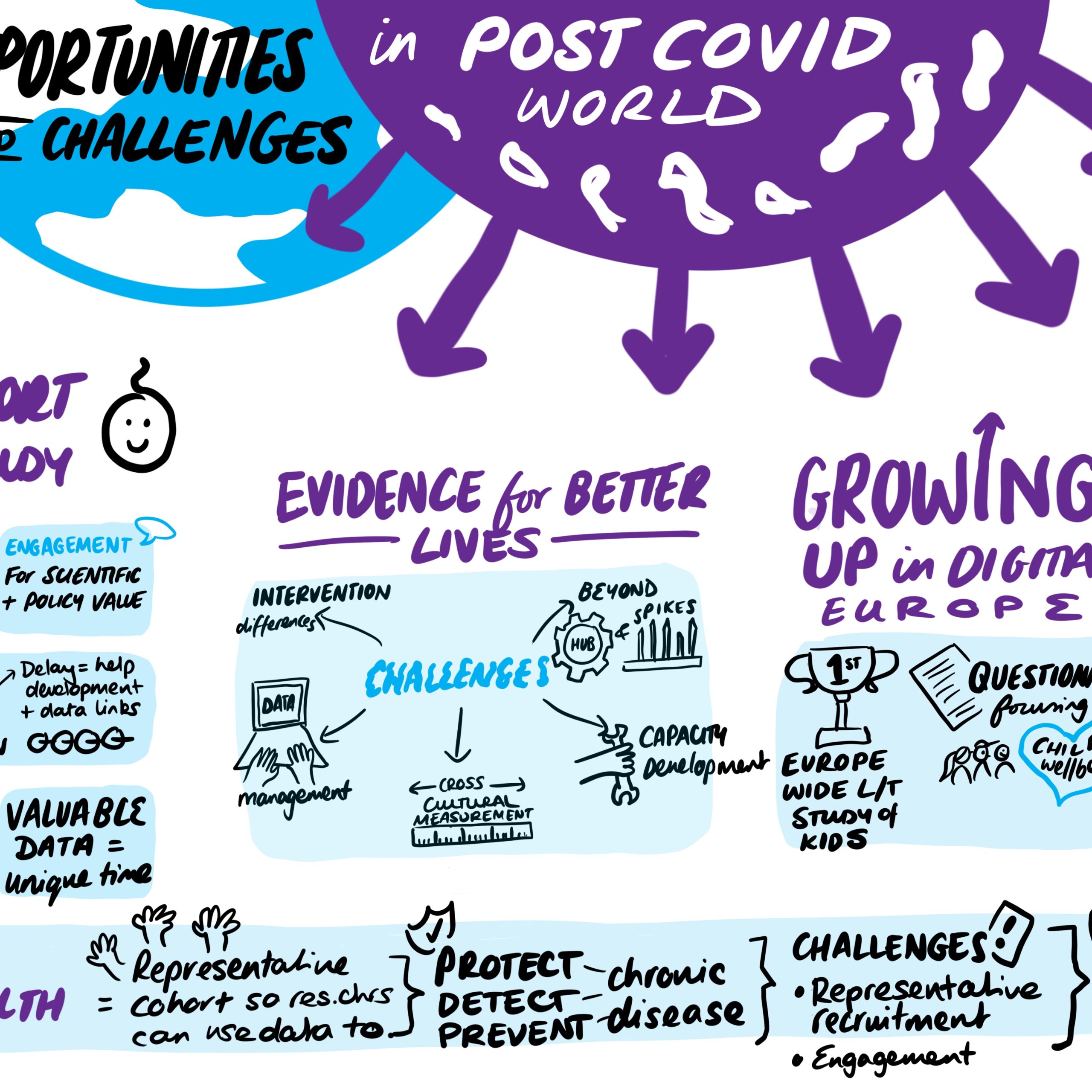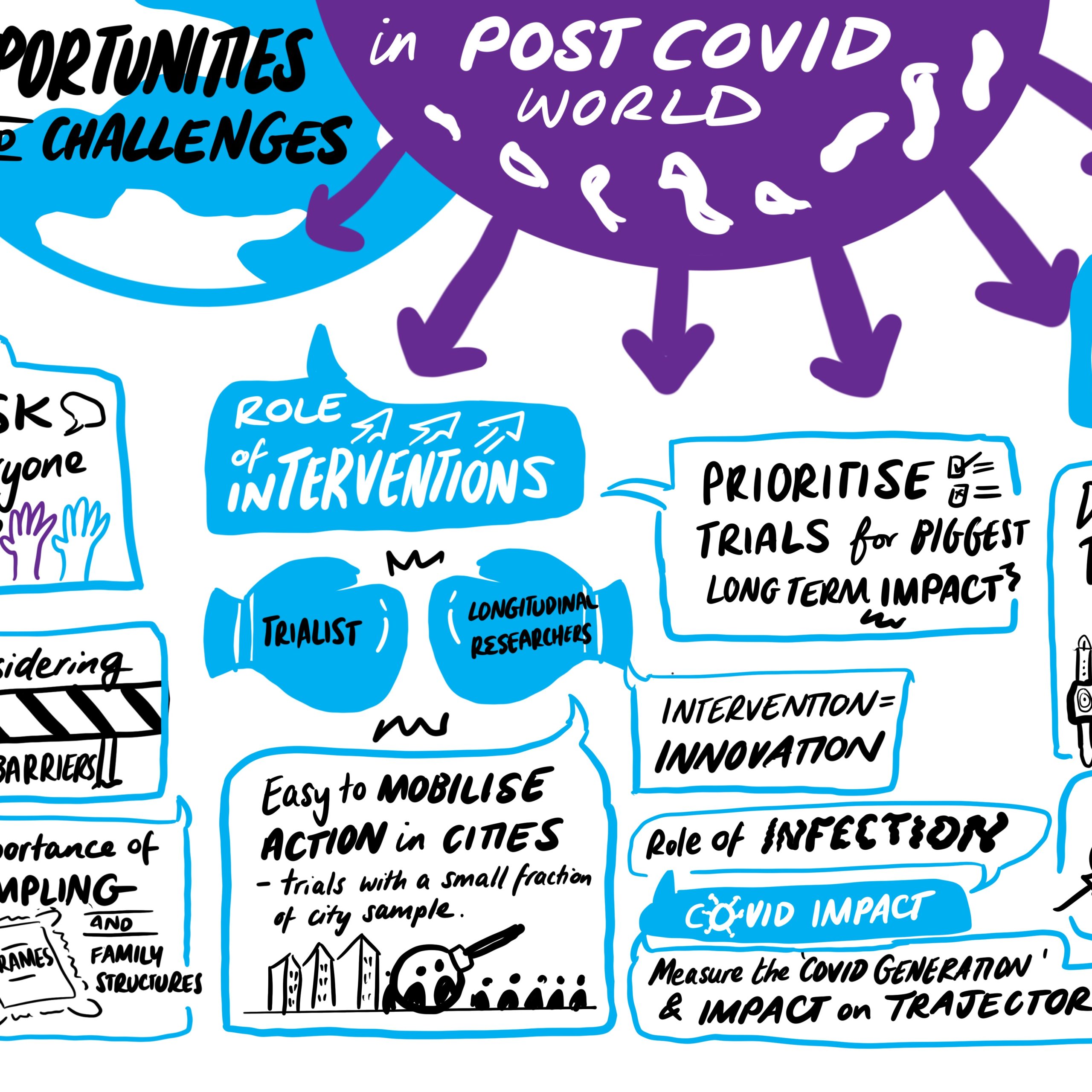Chaired by Prof Rebecca Hardy, this panel discussion focused on designing and implementing new longitudinal population studies and paid particular attention to the opportunities and challenges of doing so in a post-COVID world.
Panel members each introduced their respective studies and highlighted challenges and opportunities before participating in a Q&A with delegates.
The panel included:
- Manuel Eisner, Evidence of Better Lives Study (Low- and middle-income countries)
- Alissa Goodman, Early Life Cohort Feasibility Study (UK)
- Gary Pollock, GUIDE/EuroCohort (Europe)
- Andrew Roddam, Our Future Health (UK)
- Melissa Wake, Generation Victoria (Australia)
Summary of key points
- New studies have ambitions to ensure representativeness and diversity in cohorts. Potential strategies include sample boosts, targeted approaches, and incentives.
- Trials are possible (and in some cases, desirable) within longitudinal studies. They are easiest to implement in city or geographically based studies and we should prioritise those with greatest impact.
- New studies are uniquely placed to assess the impact of COVID-19 infections on subsequent health and track long term impacts on the ‘COVID generation’.
- They have the opportunity for innovation in areas such as data collection, with new remote possibilities such as wearables, smartphone apps, and linkages to administrative data.
Watch the talks from this session
Select the playlist icon (top far right corner) to choose which individual talk to watch.
View the talk illustrations
Select the images below to enlarge or download the Designing and implementing new longitudinal population studies illustrations as a PDF
Explore the conference report
Panel sessions
- Designing and implementing new longitudinal population studies: opportunities and challenges in a post-COVID world (currently viewing)
- Mobilising longitudinal population study data and research in the policy landscape
Conference themes
- Data linkage
- The impact of COVID-19 on longitudinal population studies
- Influencing policy
- New forms of data collection
- Participant and public engagement
Further conference materials


